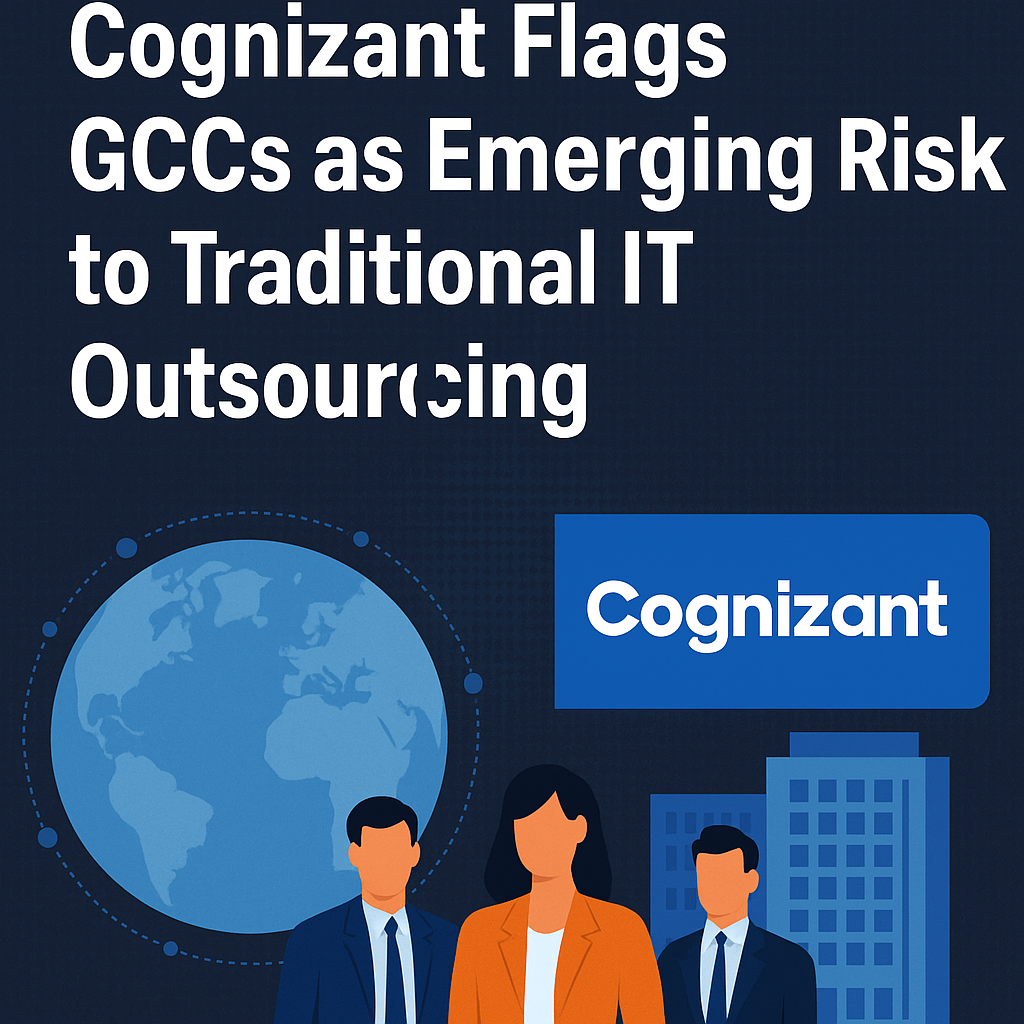
In a strategic jolt to India’s IT services landscape, Cognizant Technology Solutions has flagged Global Capability Centers (GCCs)—in-house tech arms of client companies—as a rising threat to the traditional outsourcing business model. This marks the first time a major IT firm has openly acknowledged GCCs as a material risk in its official filings, triggering industry-wide introspection.
India has emerged as the world’s top destination for GCCs, with over 1,700 centers already operational and hundreds more in the pipeline. These centers are set up by global corporations to manage IT, R&D, finance, and other key operations—functions once fully outsourced to Indian IT majors. Their rapid growth underscores a structural shift in how global enterprises manage their digital backbones.
GCCs Emerge as Competitors, Not Just Clients
In its 2024 annual report, Cognizant bluntly stated that it now competes not just with rival IT firms, but with clients’ internal tech teams. These captive centers offer businesses tighter control, cost efficiency, and direct access to AI, cloud, and cybersecurity talent—reducing dependence on third-party vendors.
“This is no longer just vendor vs. vendor. Clients themselves are becoming competitors,” Cognizant warned.
The trend is most visible among tech-forward enterprises like Amazon, JPMorgan Chase, and Microsoft, which have scaled up robust in-house digital ecosystems. These companies now prefer to control their software development, infrastructure, and emerging tech operations internally, using outsourcing partners only for niche or overflow services.
Strategic Realignment at Cognizant
Under CEO S. Ravi Kumar, Cognizant is recalibrating. The company has outlined a four-point roadmap focusing on profitability, market expansion, service diversification, and a goal to join the elite league of global IT firms by 2027. Cognizant’s direct reference to GCCs as a risk factor signals a matured understanding of the evolving competitive environment—and a call for structural change.
“We’ve evolved in our understanding of the GCC landscape,” said a Cognizant spokesperson, highlighting the shift from passive acknowledgment to proactive strategy.
This marks a rare instance of a major IT services provider publicly reframing its competitive threat not as another vendor, but as its own client base.
GCCs: From Cost Centers to Innovation Hubs
What once began as cost-saving back offices have now become innovation hubs. Today’s GCCs are driving AI integration, cloud-native product development, data analytics, and even core R&D. Companies are using them not just for support but for competitive advantage.
In fact, a recent Nasscom report highlighted that GCCs are now key to enterprise resilience, allowing companies to respond swiftly to tech disruptions while maintaining control over intellectual property and innovation cycles.
According to Viswanathan K.S., a senior technology advisor and Nasscom member, Cognizant’s acknowledgment is not a retreat, but a repositioning.
“Recognizing GCCs as part of the digital ecosystem signals maturity. IT providers must now evolve from suppliers to strategic enablers.”
Indian IT Firms Respond with Collaboration, Not Competition
Interestingly, major Indian players like TCS, Infosys, and HCL Technologies have not raised alarm bells. Instead, they are co-opting the GCC narrative, positioning themselves as strategic partners. These firms now offer services like cybersecurity, application lifecycle management, cloud support, and AI enablement tailored specifically to complement GCC operations.
By embedding themselves in the GCC ecosystem, these companies hope to remain relevant and irreplaceable—even as direct outsourcing volumes decline.
Bottom Line
Cognizant’s candid admission is more than a footnote—it’s a wake-up call. The rise of GCCs is not merely a market trend; it represents a paradigm shift in global IT services. As technology becomes core to business strategy, the days of commoditized outsourcing are numbered.
The future will favor those who innovate, co-create, and evolve from mere vendors into transformation partners—a lesson Cognizant has learned, and one the rest of the industry can’t afford to ignore.

